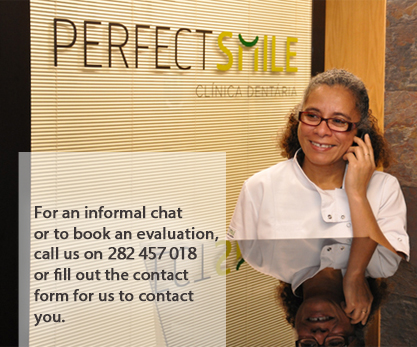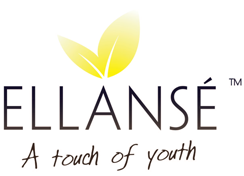 Dry Skin
Dry Skin
Ordinary dry skin (xerosis) usually isn't serious, but it can be uncomfortable and unsightly, turning plump cells into shriveled ones and creating fine lines and wrinkles.
Fortunately, most dry skin results from environmental factors that can be wholly or partially controlled.
These include:
- Weather. In general, your skin is driest in winter, when temperatures and humidity levels plummet.
- Winter conditions also tend to make many existing skin conditions worse.
- Central heating and air conditioning. Central air and heating, wood-burning stoves, space heaters and fireplaces all reduce humidity and dry your skin.
- Hot baths and showers. Frequent showering or bathing, especially if you like the water hot and your baths long, breaks down the lipid barriers in your skin. So does frequent swimming, particularly in heavily chlorinated pools.
- Harsh soaps and detergents. Many popular soaps and detergents strip lipids and water from your skin. Deodorant and antibacterial soaps are usually the most damaging, as are many shampoos, which dry out your scalp.
Other factors of dry skin, including certain diseases, can significantly alter the function and appearance of your skin.
These include:
- Psoriasis. This skin condition is marked by a rapid build-up of rough, dry, dead skin cells that form thick scales.
- Thyroid disorders. Hypothyroidism, a condition that occurs when your thyroid produces too little thyroid hormones, reduces the activity of your sweat and oil glands, leading to rough, dry skin.
- Alcohol, drugs and nicotine. Alcohol and caffeine can visibly dry your skin. Prescription drugs such as diuretics, antihistamines and isotretinoin (Roaccutane) also have a drying effect. The nicotine found in tobacco constricts blood vessels which decreases blood flow and oxygen and nutrient delivery to the skin cells. The result? Dull, lifeless skin with grey undertones.
- Dehydration. One of the first signs of dehydration is skin that has lost its elasticity. When you become dehydrated, your skin loses its fullness and natural glow. Make it a practice to drink six to eight glasses of water a day to keep skin tissues well hydrated. Avoid excessive alcohol which can promote fluid loss and contribute to the problem of dull, lifeless skin.
- Dry skin with ageing, the epidermis (outer layer of the skin) begins to thin, causing the junction with the dermis (inner layer) to flatten. Sun Damaged Skin also has a thicker epidermis (keratin), which is "dead" and irregular. There is increased water loss from the skin and a decrease of the sebaceous glands, which provides natural moisture to the skin. Your skin gets about 10% drier every decade. While oil production decreases, the lipid barrier of skin, which traps and holds in moisture, becomes increasingly defective over time. With ageing you've got a double whammy of less moisture production and less ability to hold moisture in the skin.
Home prescriptives include:
- Switch to a light cleansing cream rather than a soap which strips the skin of its natural oils.
- Always apply moisturizer immediately after facial cleansing to allow it to be maximally absorbed.
- Moisturizers which provide a seal over your skin to keep water from escaping.
- If your skin is extremely dry, you may want to apply oil, while your skin is still moist. Oil has more staying power than moisturizers do and prevents the evaporation of water from the surface of your skin.
- Home cosmeceuticals such as AHAs, PHAs GLYCOGENT is recommended to hydrate the skin.
- The following is a list of skin care ingredients that moisturise and hydrate the skin: ajuga turkestanica, aloe vera, apricot kernel oil, borage seed oil, canola oil, ceramide, cholestrol, colloidal oatmeal, dexpanthenol, dimethicone, evening primrose oil, glycerin, jojoba oil, macadamia nut oil, olive oil, safflower oil, shea butter.
- The following is a list of skin care ingredients to AVOID due to drying: alcohol if it is listed among first seven ingredients, cleansers that foam vigorously, and fragrance.
Clínica Privé Tip
A perfect antidote to dry skin in the winter months is Clínica Privé's signature facial: the Medical Grade Anti Ageing Hydrating Facial which is a three-in-one treatment and is exciting everyone who uses it. It's versatile, suits everyone and leaves skin tighter, younger fresher and more hydrated.
- It starts with a HydraFacial MD microdermabrasion to polish away surface debris.
- Next, Mesotherapy and/or tmt transdermal mesotherapy pushes the latest in anti ageing technology Growth factors, Peptides and Hyaluronic Acid deep into the dermis. The Growth Factor and Peptides signal the cells that produce collagen to switch on and the hyaluronic acid gives instant hydration to the skin as it pulls in water.
- It's very good at encouraging lymphatic drainage and reviving lifeless and neglected skin but the best results come down the line when the results of collagen production begin to manifest.









